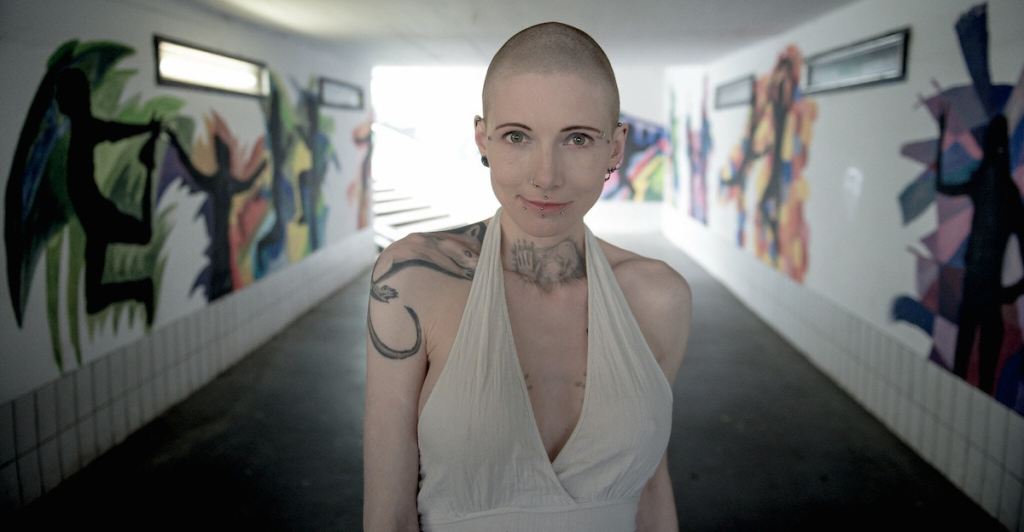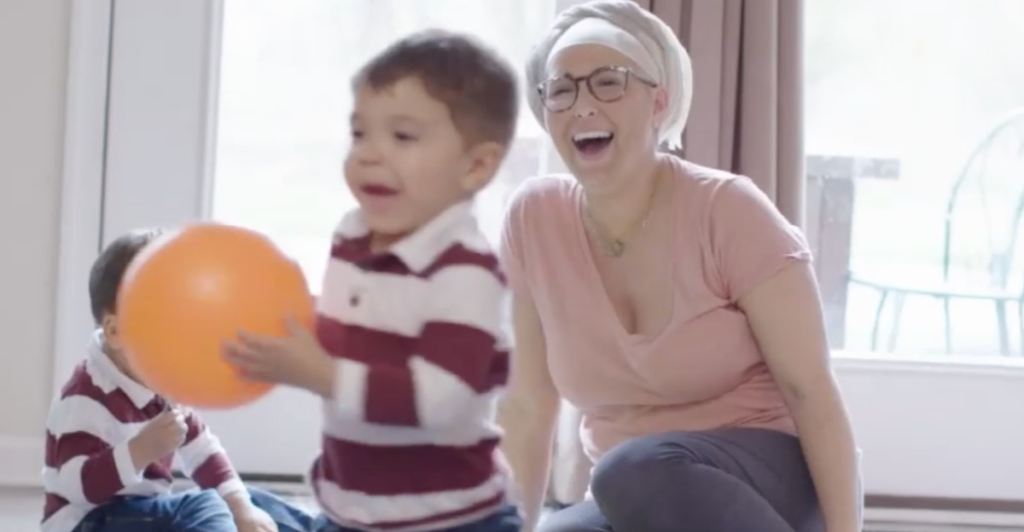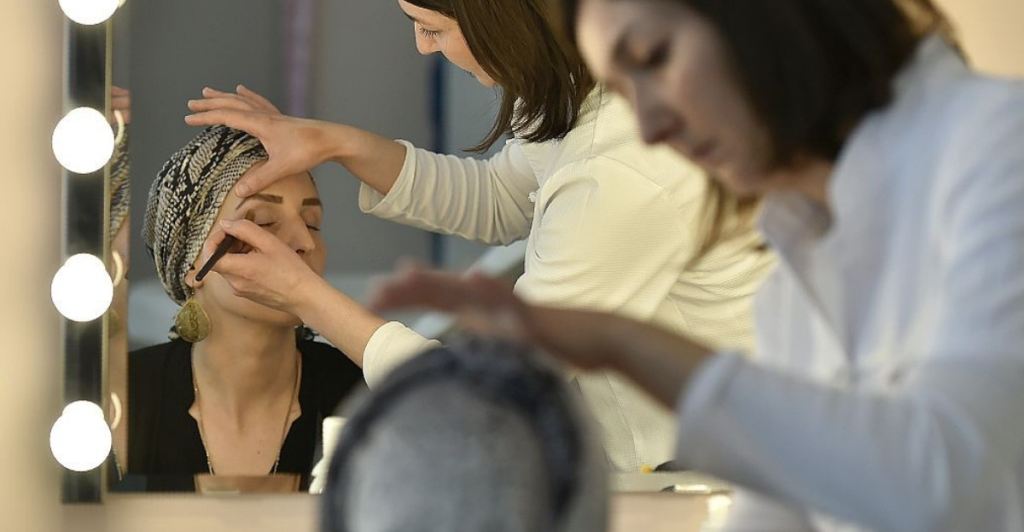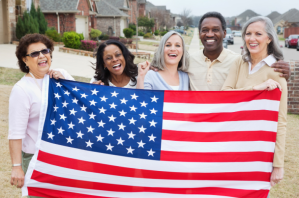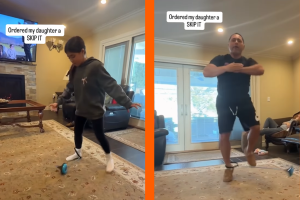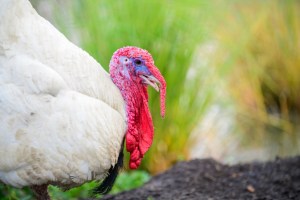Everything looks different after a cancer diagnosis, and that difference only continues once a patient enters remission.
The illness and treatment for the illness affect how a person looks and feels, and those changes can last for years if not forever.
At first, you’re so focused on surviving that looks are an afterthought. But once your appearance begins to change, it can affect you as deeply as the cancer itself.
As a result, feelings about one’s outward appearance become complicated and difficult to navigate. But with the help of family, friends, and a few professionals (plus a lot of internal fortitude), it can get easier.
We asked cancer survivors how they embraced their new normal. Here’s what they told us.
Sabrina Wang looked towards what she’d lost and then started taking control of her future.
[rebelmouse-image 19478780 dam=”1″ original_size=”750×750″ caption=”Photo courtesy of Sabrina Wang.” expand=1]
Sabrina was diagnosed with leukemia when she turned 19. She went into remission after 5 rounds of chemotherapy, but the cancer returned. After a bone marrow transplant that saved her life, Sabrina recovered but now lives with a lung condition and has entered early menopause.
Along with all of that, Sabrina had to process how cancer was changing her appearance.
“When I was battling and recovering from cancer, I was either bald or had really short hair, and I was overweight and bloated from the steroid medications I had to take,” Sabrina writes. “I had always felt insecure about my looks throughout high school and just when I felt I was finally blossoming as a woman, cancer made me feel like an ugly duckling again.”
Looking in the mirror was too much for Sabrina. Not being able to go outside, she remembers, was a comfort, because she couldn’t imagine other people seeing her. But “Look Good, Feel Better,” an event that her medical team signed up for helped her embrace the changes her body had been through.
“I attended the event with other young female cancer patients around my age who were all struggling with the same feelings about their appearance,” Sabrina writes. “The things they taught us in that workshop went further than just wigs and makeup, they taught us how to appreciate what we still have and work with what we got. I realized there were things still within my control, and I started focusing on what I could control instead of what I had lost.”
Sabrina’s hope for people living with cancer is that they can focus on what they can appreciate, even when it feels impossible.
“I remember a turning point in my cancer journey was when someone commented that it was nice I still had all my lashes even though my hair was gone. I hadn’t even thought about my lashes because I was too focused on losing my hair. That person’s comment was a lightbulb moment for me. Since that day, I started to take deliberate notice of what I still had and I continue to do that today.”
“When you have cancer, it’s easy to feel sorry for yourself because you’ll likely lose a lot of things. But I don’t dwell on the things I lost. Instead, I choose to appreciate what I still have.”
Cancer made Wade Brill question everything. Then she came upon a simple answer: Seek inner beauty and peace.
[rebelmouse-image 19478781 dam=”1″ original_size=”750×656″ caption=”Photo courtesy of Wade Brill.” expand=1]
“Cancer shook me to the ground and rebuilt the way I see and feel in this world,” Wade explains. “I was diagnosed with Hodgkin Lymphoma in 2010 and, while going through chemo, I lost my mom to her battle of Leukemia.”
Being sick and losing her mother at the same time pushed Wade to find a new perspective on life. She decided that to live to the fullest, her priorities would need to change. She also changed the way that she viewed societal standards of beauty.
“I lost most of my hair during chemo and I feared looking like a ‘cancer patient’ while I was sick. I stopped looking at myself in the mirror. I went inward and worked on harnessing confidence and light from the inside out. To this day, I don’t wear much makeup or spend a lot of time getting ready on the outside. I think it is more important [to focus] on how I “be” versus how I look, which was not the case for me before I got sick. I was so much more into brand-names and labels.”
Focusing inward should also be about taking care of your physical body, which is why Walgreen’s Feel More Like You service provides extra support for people living with cancer. Their pharmacists are there to offer recommendations for any side effects you might be experiencing while going through treatment, and talk through any concerns you might have about symptoms and/or medication.
Wade also learned to meditate and journaled her feelings. She changed how she spent her time by removing negatives from her life, starting therapy, and committing to healing herself in many ways.
“Foster self-love,” she says. “It can feel hard to do so when it feels like your body is attacking itself, but you get to play an active role in the healing process.”
“Find things that make you feel good! Whether that is a beautiful sweater you love to wear, a cute hat, beautiful earrings or an empowering necklace. Find at least one material item that makes you feel strong, empowered, and confident when you put it on.
“Look at yourself in the mirror and say, ‘you are beautiful.’ Meet yourself where you are, and don’t try to hide from it. “
Sunday Burquest’s diagnosis divided her life into a before and after. The greatest gift you can give yourself, she says, is time.
[rebelmouse-image 19478782 dam=”1″ original_size=”750×750″ caption=”Photo via Sunday Burquest.” expand=1]
Sunday knew from past experiences with loved ones how difficult cancer treatment would be, but no one, she says, prepared her for the emotional and mental toll it would take on her or how her feelings about her appearance would change.
“I’ve had eight surgeries in an attempt to reconstruct my former appearance.”
“My plastic surgeon is fantastic, but I still see the scars and the unnatural curves in my body. For several years, I looked like Barbie standing in the mirror, until I discovered a tattoo artist who specializes in helping women after a mastectomy.”
Sunday’s most important piece of advice? If you’re undergoing cancer treatment, give yourself time to process the diagnosis and treatment, and allow yourself to deal with the emotions that come up in your own way.
“Don’t allow others’ opinions of what you “should” or “shouldn’t” do dictate your decisions. Do what is right for you! Allow yourself to grieve the changes in your body, emotions, and relationships. Try not to expect to get back to normal. Rather, spend time creating your own “new normal.”
“Don’t compare yourself – you are you and beautiful the way you are, never allow anyone to make you feel as though you aren’t the amazing bad-ass that you are!”
Everyone deserves to feel better and more like themselves — on the inside and out — no matter what they’re going through.
That’s why Walgreens created their Feel More Like You service.
Now at over 3,000 locations nationwide, the free service brings together specially trained beauty consultants and pharmacists to help people living with cancer receive individualized guidance and manage the changes they’re experiencing and make them look and feel their very best, especially when faced with one of life’s biggest challenges.
Feeling more like yourself is a step towards getting your life back. And if your “self” looks and feels different than it did before cancer, it’s important to get to know that person and realize that they’re just as worthwhile.

